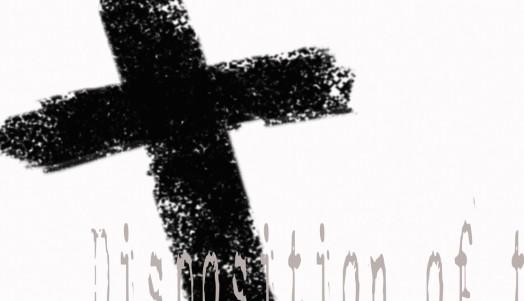
1 minute read
In the Beginning: The Book of John
(John 18:10-16 [HCSB])
10 Then Simon Peter, who had a sword, drew it, struck the high priest’s slave, and cut off his right ear. (The slave’s name was Malchus.) 11 At that, Jesus said to Peter, “Sheathe your sword! Am I not to drink the cup the Father has given Me? ”
Advertisement
12 Then the company of soldiers, the commander, and the Jewish temple police arrested Jesus and tied Him up. 13 First they led Him to Annas, for he was the father-in-law of Caiaphas, who was high priest that year.
14 Caiaphas was the one who had advised the Jews that it was advantageous that one man should die for the people.
15 Meanwhile, Simon Peter was following Jesus, as was another disciple. That disciple was an acquaintance of the high priest; so he went with Jesus into the high priest’s courtyard.
16 But Peter remained standing outside by the door. So the other disciple, the one known to the high priest, went out and spoke to the girl who was the doorkeeper and brought Peter in.
Peter strikes Malchus
Peter is Peter. Jesus is Jesus, and cleans up yet another of Peter’s messes by healing the slave’s severed ear on the Mount of Olives. Since little is recorded about the other disciples’ activities we should conclude that Peter’s decisive actions tell us something important about him for the purpose of better understanding his character as a source of strength and direction for the fledgling church. Peter’s imperfect acts showcase Jesus’ perfect love. None are lost that believe on Him.
1.) Jesus never let Peter’s actions overshadow His own ministry. While Jesus remained open to His disciple’s concerns, He was undeterred. And, while Peter was undoubtedly the true zealot among the Twelve he could never hold a candle to Jesus as the classic revolutionary!
2.) In verse 14 Caiaphas’ own words were recounted as prophetic … prophecy that he was obviously unaware of: “That it would be advantageous that one man should die for the people.” This clearly overshadows anything Pilate or Herod may have prophesied that day because it was uttered by a faithful Jew, was clearly messianic, and it foreshadowed the struggle of a people after God’s own heart … a nation which crucified its own king.
3.) We know that at the core of the accusations against Jesus were issues of theology only. Political tinder would be added later.
4.) Peter, ever-determined, followed Jesus with another disciple, presumed to be John, the one Jesus loved. This is an intriguing third person reference, one which echoes Mark placing himself on the Mount of Olives in his own gospel.
Peter was about to learn the truth of Jesus’ words.




